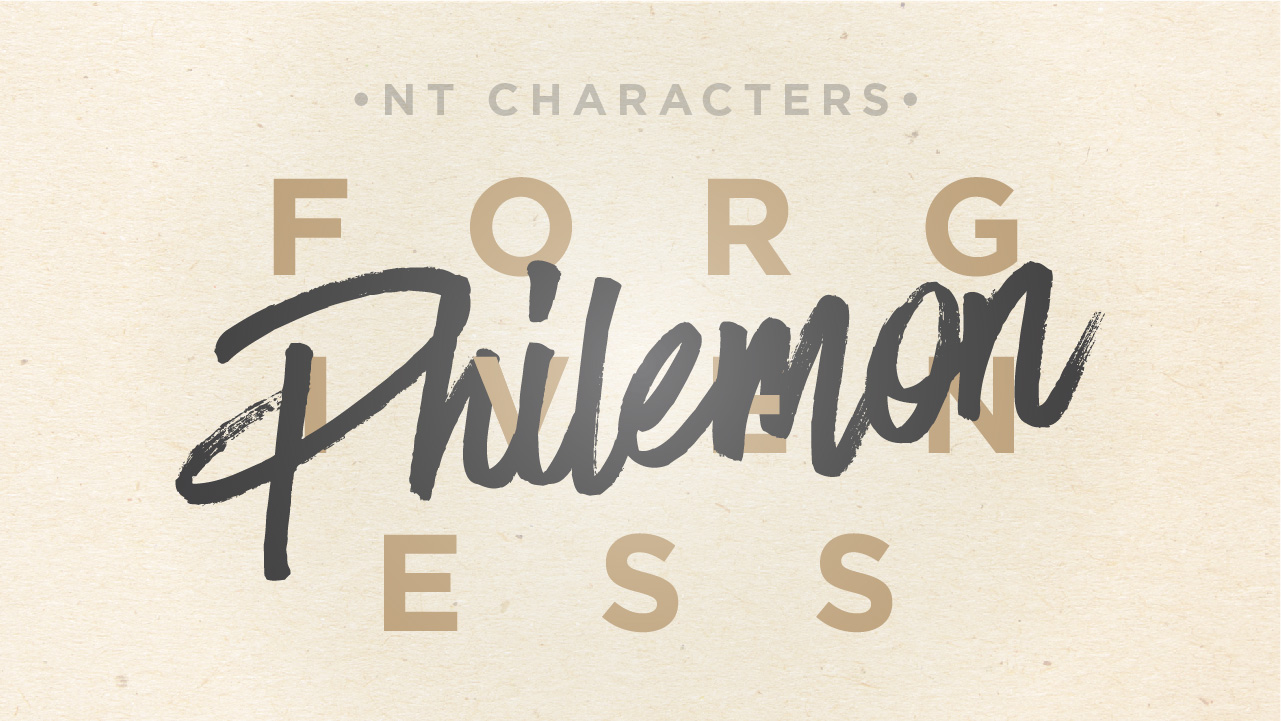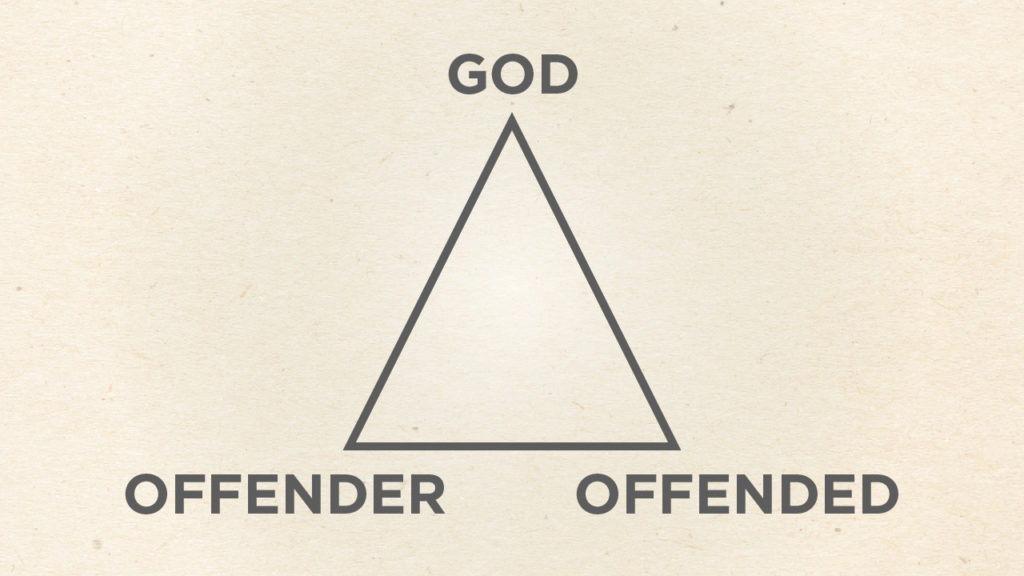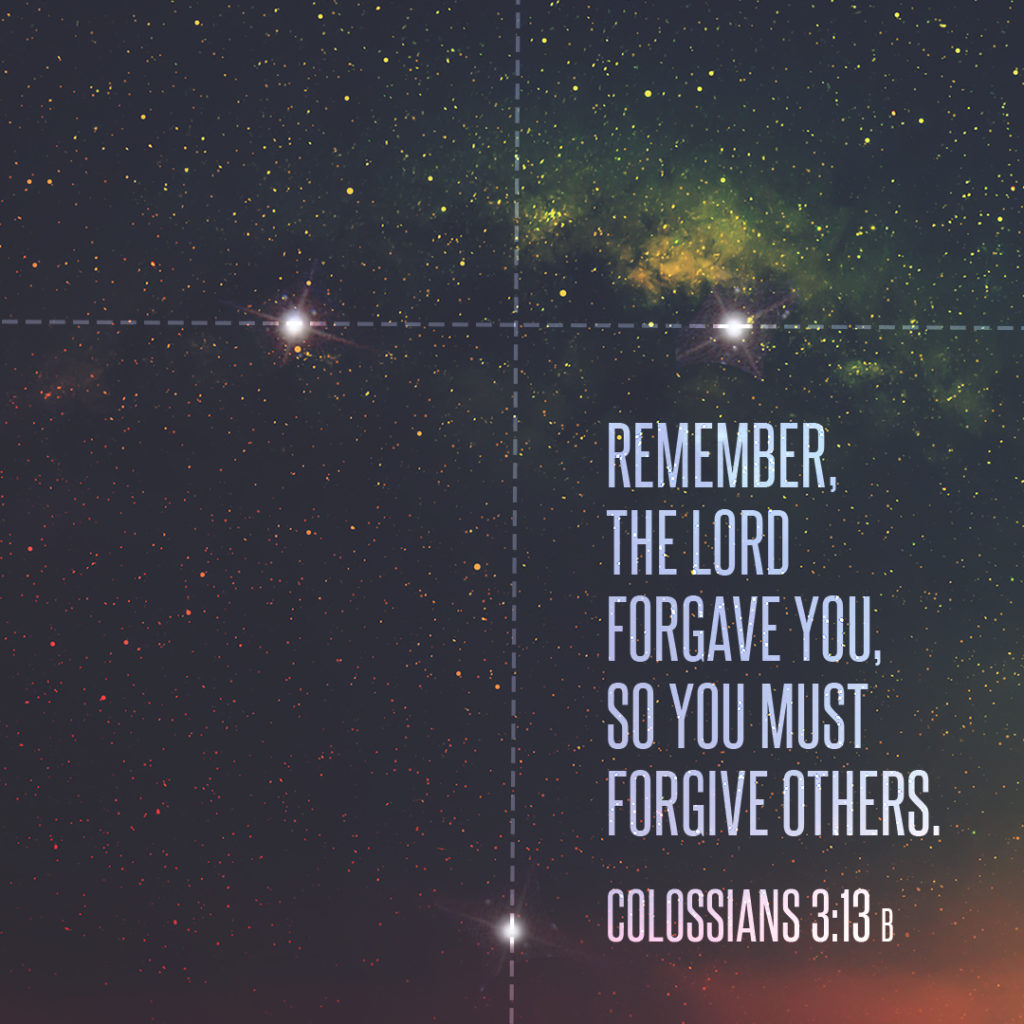
09 Aug Sermon Recap | New Testament Characters | Philemon
All of us, at one point, have found ourselves in the position of Philemon, the offended. We have been betrayed, left feeling vulnerable, abused, and taken advantage of. And yet, we have all also found ourselves in the shoes of the offender, Onesimus. We have sinned, unintentionally or intentionally wronging a friend. We have taken advantage and betrayed. As inevitable the need for forgiveness is, it no less difficult to accomplish. Whether seeking forgiveness, or seeking to forgive, we know the reality of forgiveness is much less black and white than most sermons make it out to be. Yet, a glimpse into the relationship of Philemon and Onesimus can give us insight into what it looks like to forgive and be forgiven. As Paul pleads with Philemon to forgive Onesimus for stealing his belongings, many of us can relate to the conflict between being willing to forgive, and desiring justice.
Scripture References

1. Forgiveness is not about people getting what they deserve. In fact, because none of us deserves to be forgiven, it is actually the opposite. Forgiveness is instead a matter of faith, trust, and belief in a just God. What offenses towards you do you need to hand over to God Himself?
2. Forgiveness is a choice and not primarily an emotion. Forgiveness does not feel good, and if we wait to forgive until it does, we will harbor unforgiveness. Eventually we will poison ourselves. What steps do you need to take or daily disciplines do you need to implement in order to move toward forgiveness?
3. Forgiving frees us and others to be useful. People all around us need to be served and helped, but when we don’t forgive, we become too consumed with our own hurt. In many cases, this leads to everyone having to help you rather than you helping anyone. Are you someone that is always needing to be accommodated or helped? Are there people in your community who need your encouragement towards the freedom of forgiveness?
4. Forgiveness means that you, the offended, absorb the cost of the offense. Often, we forget that we are the ultimate betrayers. Where are you harboring unforgiveness rather than absorbing the costs and forgiving as you have been forgiven?
5. In order to forgive, we must make allowance for each other’s faults, and remember that the Lord has forgiven us. Who do you need to forgive? Who do you need to ask for forgiveness? What does it look like to begin this process today?
Thoughts to Consider
-We all tend to exaggerate our own wounds, and minimize the harm we have inflicted on others. But we can’t withhold forgiveness until someone deserves it. No one deserves forgiveness. Just as God forgives us, we are called to forgive others.
-Forgiveness and reconciliation are not necessarily synonymous. Forgiveness doesn’t always result in restoration. Restoration is oftentimes a complicated and lengthy process.
-On the spectrum of betrayal and hurt, some of us have areas that will require considerable amounts of time, energy, and prayer for reconciliation In other cases, restoration may occur immediately and strengthen our relationship through a lesser offense.
-Like palmetto trees that absorbed cannonballs in war instead of allowing the cannons to wreak the havoc intended, we too must be strong enough to absorb the wrongs we experience in order to prevent internal destruction.

“Forgiveness is a choice you live into, not an emotion you live out of.“
“Forgiveness is the generous release of a genuine debt.“
“Until you are secure in your own forgiveness you will struggle to forgive others.”
“Forgiveness is not only appropriate—it’s a lifeline for us.“
“Jesus absorbed into Himself my rebellion. Celebrate that.“



